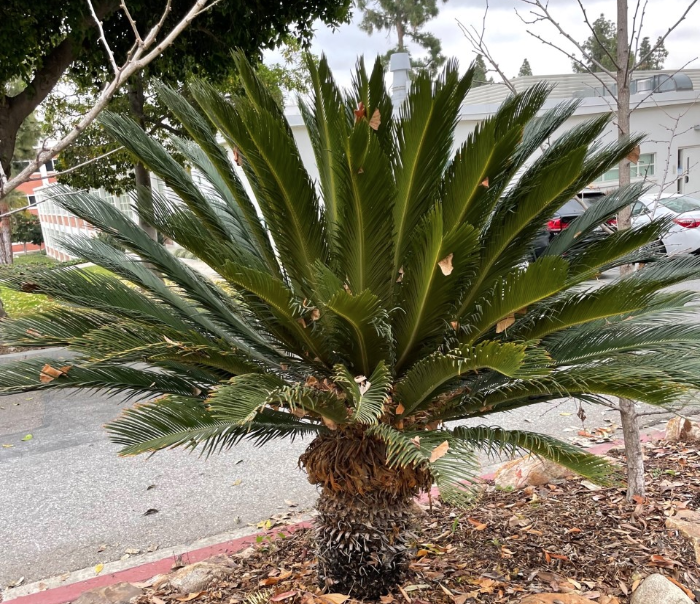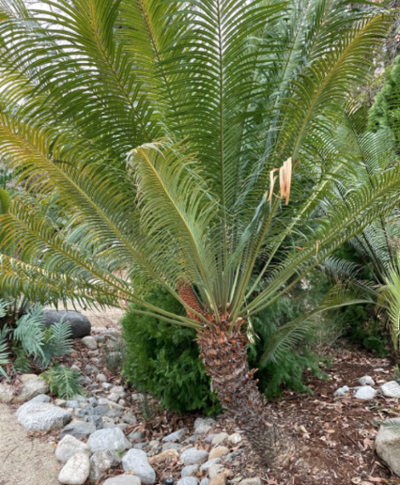Cycads
Debao sutie - Cycas debaoensis
Endemic to Guangxi, China, this palm is critically endangered with fewer than 1200 trees in the wild. The overharvesting of immature trees for export has worsened their population decline.
Miquel's horncone - Ceratozamia miqueliana
Endemic to Veracruz, Mexico, Miquel's horncone is found at elevations of 60 to 800m (200 to 2600ft) in cool, humid rainforests in the wild. Regularly grown as an ornamental.
The Queen Sago is native to Southern India and Sri Lanka. Though grown as an ornamental in many areas of the world, especially Hawai'i, it is endangered in its native range.
The Japanese Sago, or sotetsu, is one of the most common cycads grown worldwide. Raw cycads are extremely poisonous, but extensive treatment of the spongy pith at the center of the trunk can render it edible. On Amami Oshima, an island south of Kyushu, these plants have a long history as a food source in hard times.

Chestnut dioon is native to the Sierra Madre Oriental, the western mountain range of Mexico, and is found between 500 and 1500 meteres in elevation on rocky cliffs.
Giant dioon/Gum palm - Dioon spinulosum
Coyolito de Cerro is native to a small region of western Oaxaca and eastern Veracruz, Mexico, and is listed as endangered on the IUCN Red List. It is threatened by extensive habitat detsruction due to farming, mining, and reservoir construction in the area.
Uthoban, Chihanga - Encephalartos ferox
This cycad had the name broodboom, which means bread tree. This name comes from the fact that these cycads were a source of food. The startchy pit of the cone is removed, wrapped up and fermented, which is used to make a meal.
Pineapple cycad - Lepidozamia peroffskyana
Lepidozamia peroffskyana is one of the tallest growing cycads. It has been observed to grow up to seven meters in height. These cycads also make great containers plants, as they grow well in partial shade.
Zamia pumila is a low growing woody cycad. It has a cold tolerance and is natevely found in Florida. It prefers sandy grounds and has a tolerance for salt.
